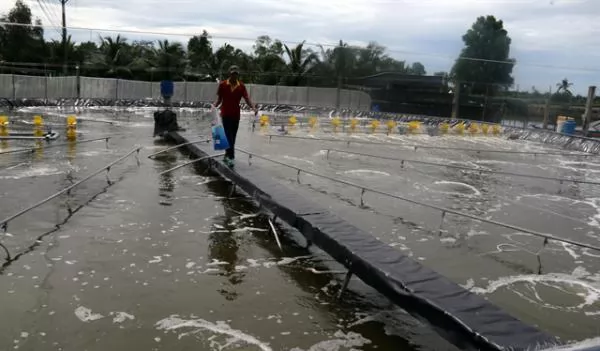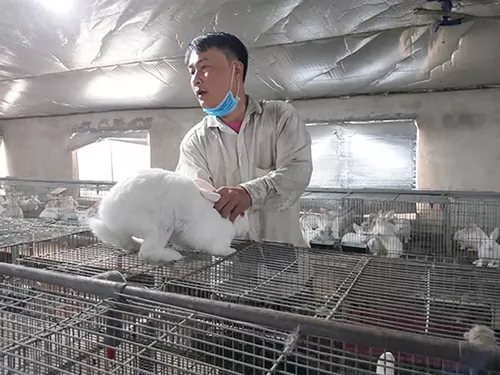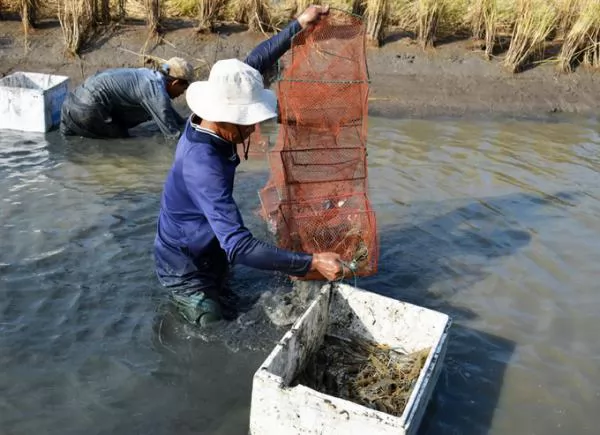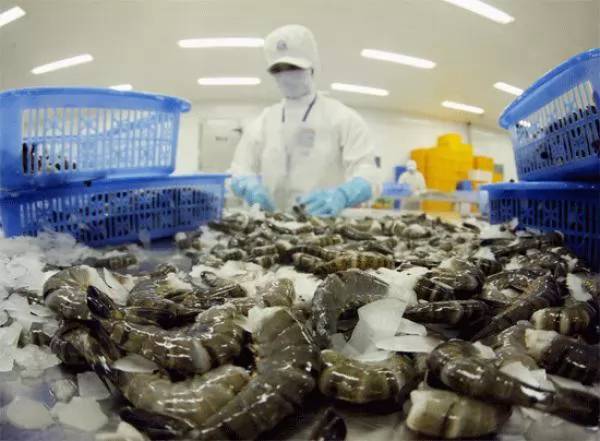Kiên Giang to provide traceability codes to brackish water shrimp farms

Breeding shrimp using advanced two-stage industrial farming model in Kiên Giang Province's An Minh District. - VNA/VNS Photo Lê Sen
KIÊN GIANG – The Cửu Long (Mekong) Delta province of Kiên Giang plans to grant traceability codes between July and September to all households breeding brackish water shrimp.
Quảng Trọng Thao, deputy director of its Department of Agriculture and Rural Development, said the tracing of origin would meet the requirements of importers but also improve the efficiency of the Government’s management of shrimp farming.
The Fisheries Sub-department is working with relevant agencies and localities to provide the codes.
Meanwhile, localities are carrying out advocacy activities to inform farmers about the use of the codes, and their benefits and responsibilities.
The province has more than 134,200ha of brackish water shrimp farms belonging to more than 60,000 households, mostly in coastal districts and Hà Tiên City.
They use various models, including industrial and semi-industrial farming on 3,680ha, shrimp – rice farming on 102,500ha and extensive and advanced extensive farming on 28,000ha.
They harvest 95,000 – 100,000 tonnes a year.
Kiên Giang, the country’s largest rice producer, enjoys advantages in rice – shrimp farming under which farmers farm rice in the rainy season and shrimp in the dry season on the same fields.
The province plans to marginally expand its brackish water shrimp farms this year, and use methods suitable for each region to maximise output and quality and mitigate disease risks and losses, according to the department.
The use of advanced two-stage and three-stage industrial farming models and adoption of Vietnamese good agricultural practice (VietGAP) and other international farming standards to meet export requirements are encouraged, it said.
The province plans to develop rice – shrimp farming in the districts of An Biên, An Minh, Vĩnh Thuận, U Minh Thượng, Gò Quao, Hòn Đất, Kiên Lương, and Giang Thành.
With encouragement from authorities, farmers have turned tens of thousands of hectares of unproductive mono-culture rice fields along the coast into rice-shrimp farms in recent years. – VNS
Maybe you are interested

Tuyên Quang rabbit farmer profits from raising New Zealand breed
TUYÊN QUANG - Raising New Zealand rabbits is providing a good income - about VNĐ200 million (US$8,600) net profit per year - to Nguyễn Công Định, living in the northern province of Tuyên Quang, as restaurants have a high demand for rabbit meat.

Delta farmers reap high profits from breeding giant river prawn
Viet Nam News | HCM CITY — Farmers in the Mekong Delta have had a bumper harvest of giant river prawns at good prices because of favourable weather conditions and high market demand.

Solutions sought for $10b shrimp plan
A conference was held in the Mekong Delta province of Sóc Trăng on Thursday to discuss how to realise the US$10 billion shrimp export target by 2025 as requested by the Prime Minister.





